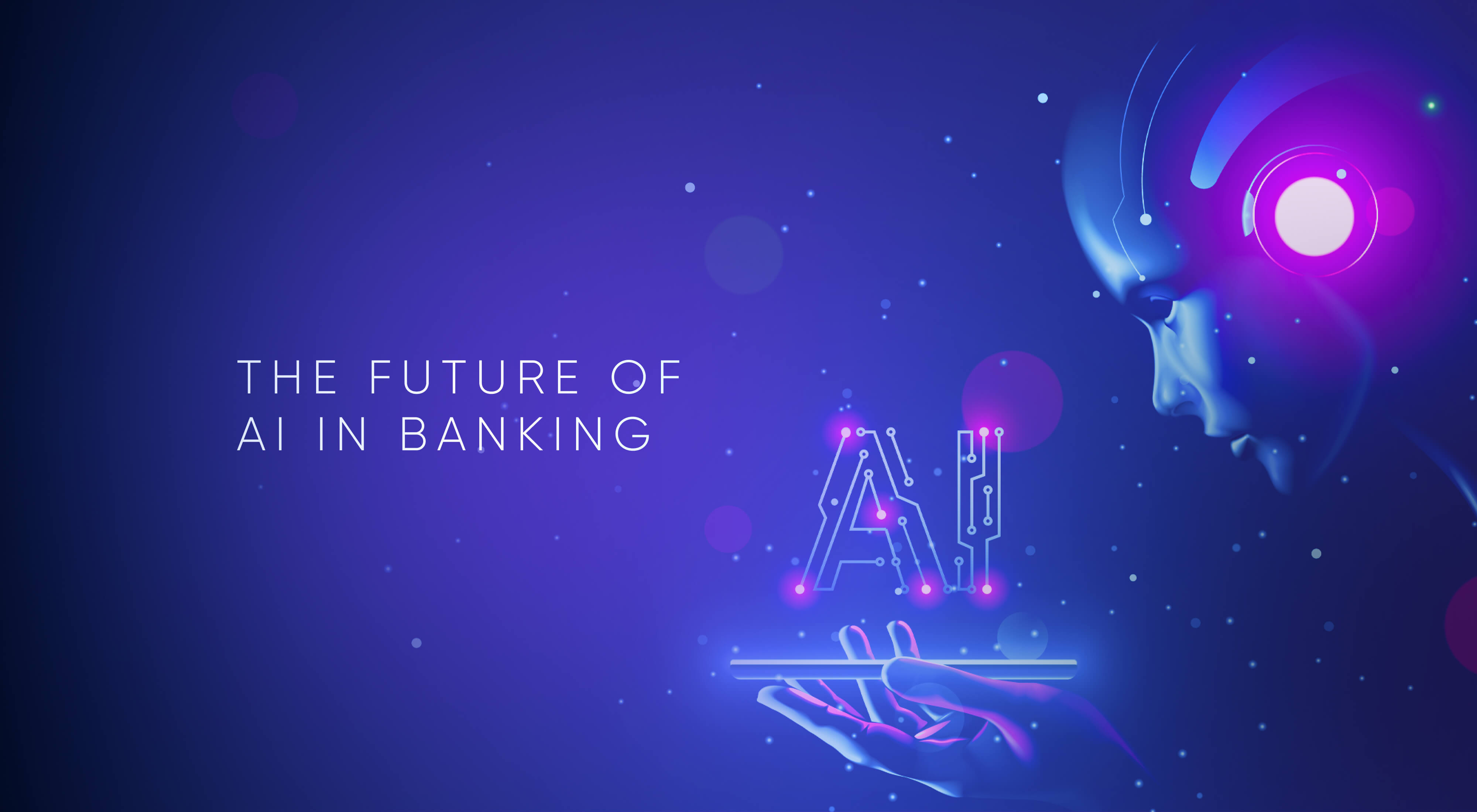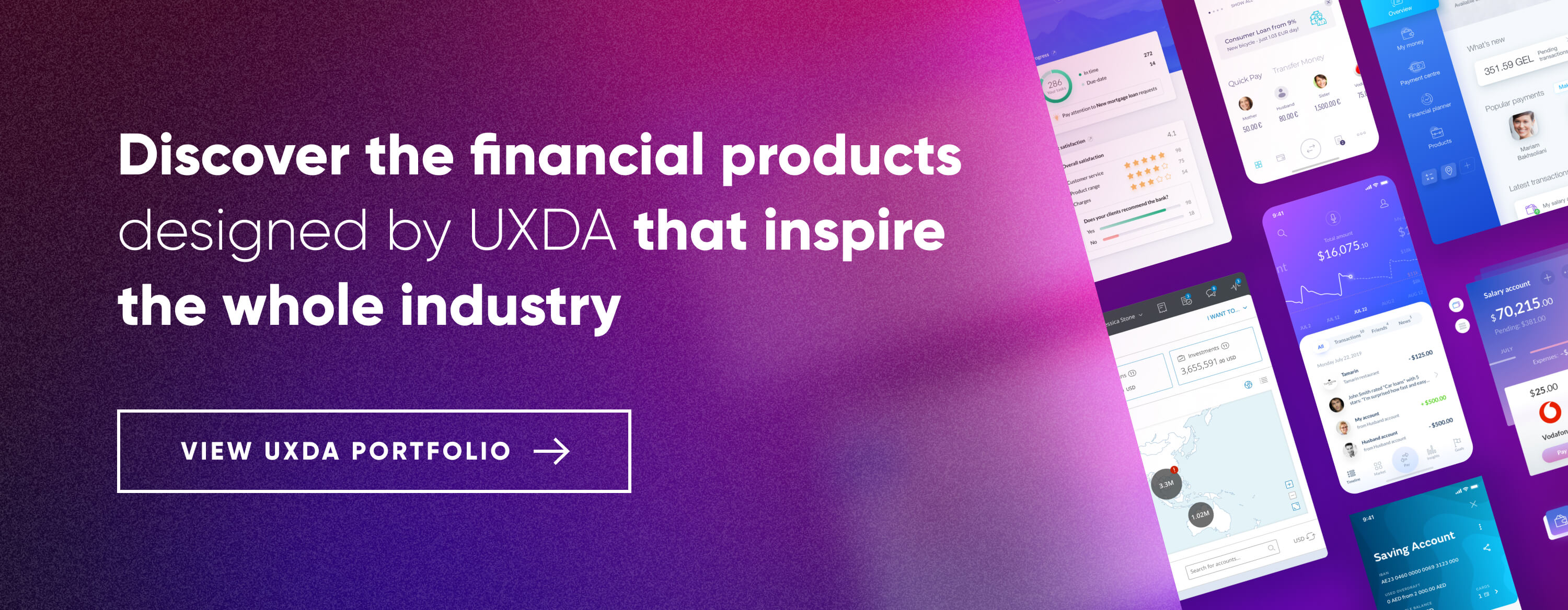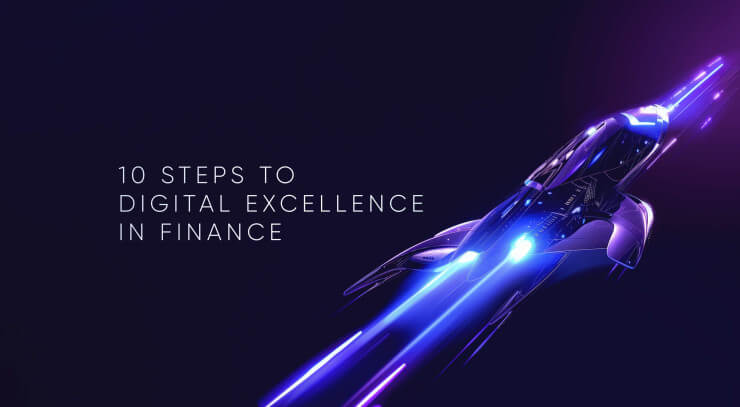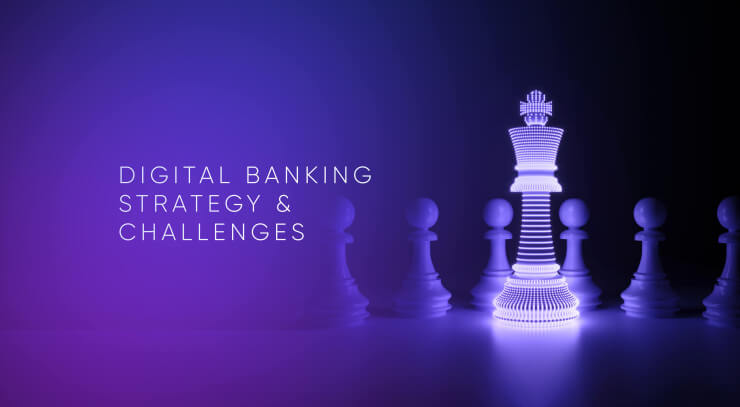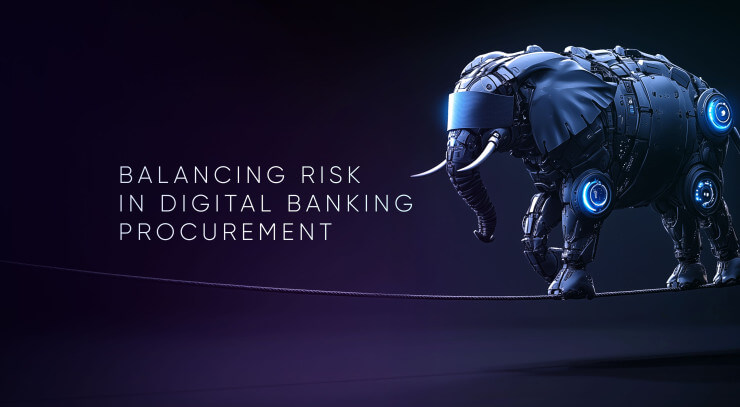Everyone agrees that AI in banking will have a drastic impact on the industry in the next five years, especially after ChatGPT's phenomenal success. This is because of the large gap caused by limited human abilities. If we look a bit further, we can see the disruptive perspective of AI that will go well beyond banking, completely transforming digital customer experience and even providing superpowers to mankind.
Yes, it hasn't happened yet, but we should start thinking already today about how it could affect our businesses tomorrow. The main question is not “what if”, but HOW exactly it will affect us and HOW we can prepare.
The Impact of AI in Banking
Banks are already collecting a lot of data about their customers, but releasing the full potential of this information requires a new level of technology. This could be the holy grail on the way to solving customer struggles and fulfilling their needs and desires.
If we were able to properly process all of this data, we could provide customers with a personalized solution at exactly the right moment. Unfortunately, this is still not fully available. It's an enormous amount of work, impossible to do manually.
The huge amounts of already collected data is only the beginning. Digital technology expansion will provide all financial institutions with tons of additional data. It will be collected from users' smartphones, social networks, public services APIs, third-party financial services through open banking APIs and even from everyday gadgets connected to the IoT (Internet of Things) network through 5G.
It's a fact that, with these kinds of sources, the amount of data will rapidly grow. Due to its volume, we would need a superhero to process all of this information and, most importantly, make sense of it and put it to great use. This is where AI could become our savior in the next five years.
As a result, it will help banking to infiltrate customers' private lives on a much deeper level to provide personalized insights and user experiences on a brand new level.
As of now, AI in banking is discussed primarily in connection with specific features, but this is only the basic level of AI's potential. Soon, we will see AI’s impact on a much larger scale in such banking experience fields as:
Personalized Offers
Using AI for more accurate customer credit scoring based not only on the bank's profile and credit history, but also social profiles, and offline activity will provide customized proposals for each customer. It also reduces risks for the banks themselves. This could help to quickly and easily match users’ needs with the right product at exactly the right time when a person needs it.
You can see a real example of this in the future mobile banking Light Bank UX concept Case study
Investment
To take human irrationality out of investment decisions, AI will analyze multiple business and market factors to forecast business success.
Security
AI will move most of the verification technicality to the background. This will bring more trust to digital banking and move it closer to people without the need for confirming identification at every step.
Advisory
AI will help to gain insights about the struggles and needs of every customer by calculating forecasts based on individual profiling and big data processing. Such forecasts will help customers take back control of their finances by making better decisions and executing healthier financial behavior.
This is covered in the UX Case Study: How to Create a Mobile Banking Super App
Support
AI bots will provide instant solutions for frustrated users that are not generalized and useless but fitted to the customer's specific needs.
Alternative processing
AI will help to enable banking operations using alternative interfaces, such as voice, gestures, neuro, VR and AR. This will allow the implementation of banking solutions into different experiences of every human being connected to the digital space.
AI might be the hottest tech topic at the moment, but I believe conversational banking, drones or chatbots aren't even close to the true potential of AI. In my opinion, we should not associate AI only with these topics as it would be like buying the most expensive iPhone to use as a nutcracker. I dare to say that the true power of AI could possibly change the whole life paradigm of mankind.
Big Data Getting Even Bigger
To realize the full potential of AI, we have to explore it from a broader perspective. Do you know how much data we generate at the moment? According to IBM, 90% of the data in the world today has been created in the past two years.
Every day, we produce 2.5 quintillion bytes of information through our smartphones, computers, and other gadgets.
This could be 750 times all the content of the Library of Congress, every day… And, in 2030, this volume will be much higher thanks to IoT.
Soon, sensors will be everywhere, generating even more data about everything ranging from weather conditions, buildings and vehicles to, of course, us... humans.
At the moment, analysts use advanced tools to generate, collect and exchange data, but, due to the rapidly increasing volume, it is still difficult to properly analyze and gain valuable insights the data can provide.
Currently, only scientists and big tech engineers in this field are equipped with sophisticated algorithms and computer systems that can find connections in only a limited number of parameters. These are dramatically affected by human perception patterns, as we are physically and mentally limited in processing such a huge amount of data.
You might say that there's nothing new about the use of AI in the analysis of big data, but what if it was a tool available for everyone and not just scientists?
The Holy Grail of Unanswered Questions
There are so many scientific, intellectual, and overall existential questions we ask daily: how to cure deadly illnesses, what's the meaning of life, how to create the most successful business… and so on. Now, what if AI was the holy grail carrying all the answers?
What if every single one of us could use AI to predict the consequences of each of our decisions, providing on-the-go push notifications about how to act? These directions would be based on thousands of data parameters collected from billions of people and analyzed by AI with the goal of finding significant connections and cross-influence in your specific case.
From a financial perspective, an AI advisor could forecast outcomes of our decisions even before we have made them, thus saving us from drastic failures, irrational behavior, and reduced self-esteem.
AI could identify hidden connections that have a critical effect on our well being, taking into account all the huge data collected in our profile by banks and the Internet of Things comparing to other users.
Imagine that your personal AI advisor recommends taking specific online courses because it has detected that it brings revolutionary ideas to similar users and could grow your wealth as a result. Or, it could provide specific steps to organize your cash flow to reduce the stress level detected by smartwatches.
Another example: AI analyzes all data on your health and daily habits being able to clearly predict that, if you do not change your diet and exercise regimen, you have a 90% chance of having a specific heart condition in just two years’ time.
Or, your social networks could recommend five people who could become your closest friends, based on a thorough analysis of interests, mutual friends, activities, habits, posts, etc.
And, this is not fiction or some vague assumptions. Deep Thought, the supercomputer programmed to solve the "ultimate question of life, the universe, and everything" in The Hitchhiker's Guide To The Galaxy, could become a toy available to everyone thanks to advanced AI, based on big data.
This kind of advanced AI will be free of human brain restrictions and will be able to find correlations of data types we would never even think of analyzing. This will provide revolutionary insights in biology, technology, finance, physics, and our personal lives.
The incredible array of data that is currently useless will become a valuable source of insights for each of us and, of course, for entrepreneurship. This is a way to realize not only the potential of every person but of all mankind.
The Future is Near
Of course, this approach to using AI can have its dark side. For example, people will be able to ask their AI assistant to find ways to impact the opinions and decisions of others. But, every medal has two sides; it's a question of managing it.
I believe AI implementation will start with automation of some basic processes similar to ones I mentioned in the introduction of this article. Very soon, you will see a full spectrum of AI solutions as power features in different apps, services and segments, including banking.
The most interesting is what will happen in the next step when AI solutions move beyond banking, health or the Internet of Things on the way to personal AI advisors similar to one from the Blade Runner 2049.

Ana de Armas as Joi and Ryan Gosling as K appear in a scene from “Blade Runner 2049.” Film Name: BLADE RUNNER 2049 Copyright: © 2017 ALCON ENTERTAINMENT. Pictures and Sony Pictures Entertainment release, domestic distribution by Warner Bros. GIF source: calebmasters.net
It will aggregate all the data from all your accounts, activities and life aspects to generate and provide valuable insights on the go and support you as your personal tech assistant. And this will drastically impact business (as contextual advertising from Google did previously), because AI will become a next level contextual advisor.
This way, when technology becomes more and more advanced, we will experience a much more serious impact than could ever be imagined. Thanks to AI, ordinary people will have the opportunity to make more effective and impactful decisions in their daily lives using appropriate insights extracted from the data collected by all mankind.
Such an impact will enable a transition of human abilities beyond the limitations of our brains and rationality to help us become supernatural beings.
The full potential of AI is immeasurable, we can only speculate. Companies that will be able to humanize AI and use its power to solve people's problems will be the ones to conquer the future market. Those are companies that combine technological advancements and innovations with the knowledge of user experience, working closely with UX (user experience) architects to create a brand new experience.
Here at UXDA we are proud to be a part of such a project, working with one of the TOP 10 most innovative AI companies of 2020, that's also included in the S&P 500 Index, together creating a better future for people all over the world.
Get UXDA Research-Based White Paper "How to Win the Hearts of Digital Customers":
 If you want to create next-gen financial products to receive an exceptional competitive advantage in the digital age, contact us! With the power of financial UX design, we can help you turn your business into a beloved financial brand with a strong emotional connection with your clients, resulting in success, demand, and long-term customer loyalty.
If you want to create next-gen financial products to receive an exceptional competitive advantage in the digital age, contact us! With the power of financial UX design, we can help you turn your business into a beloved financial brand with a strong emotional connection with your clients, resulting in success, demand, and long-term customer loyalty.
- E-mail us at info@theuxda.com
- Chat with us in Whatsapp
- Send a direct message to UXDA's CEO Alex Kreger on Linkedin


